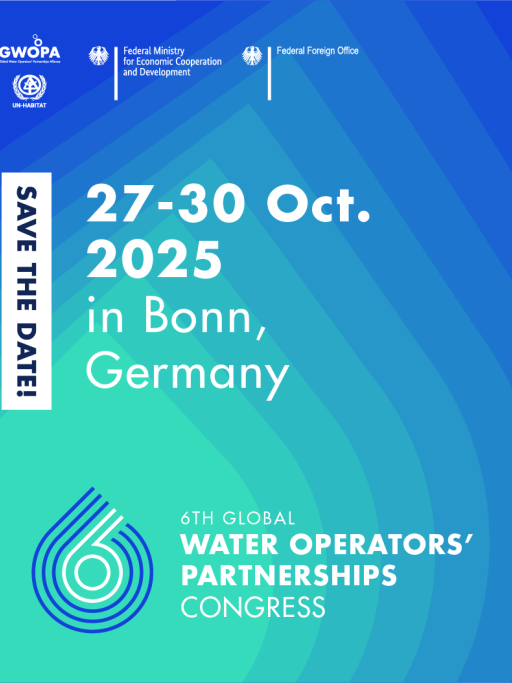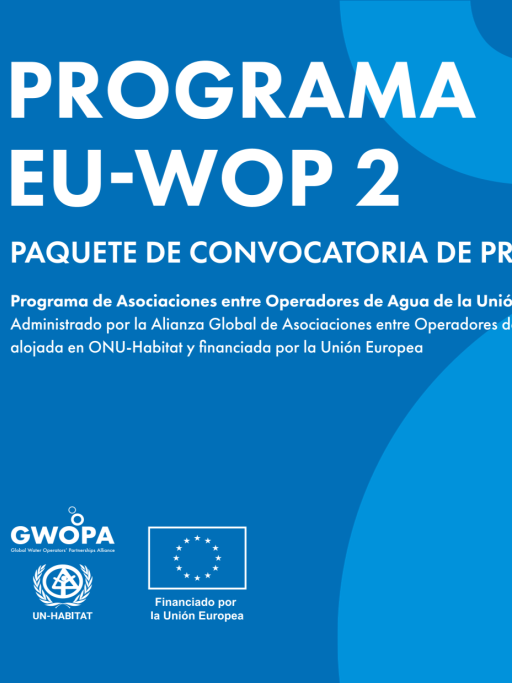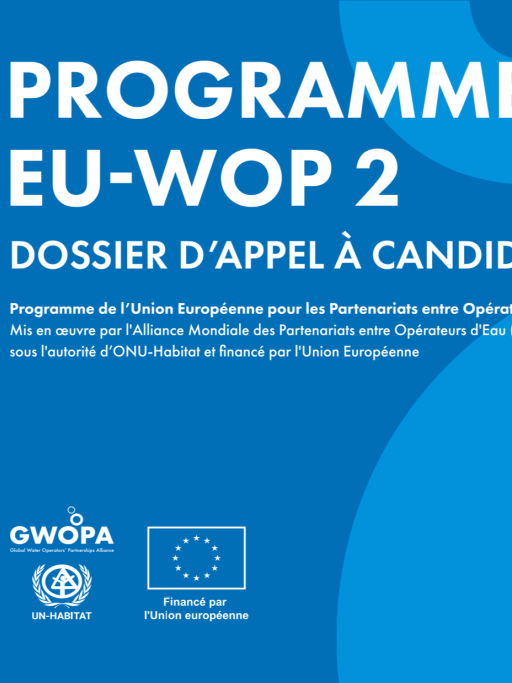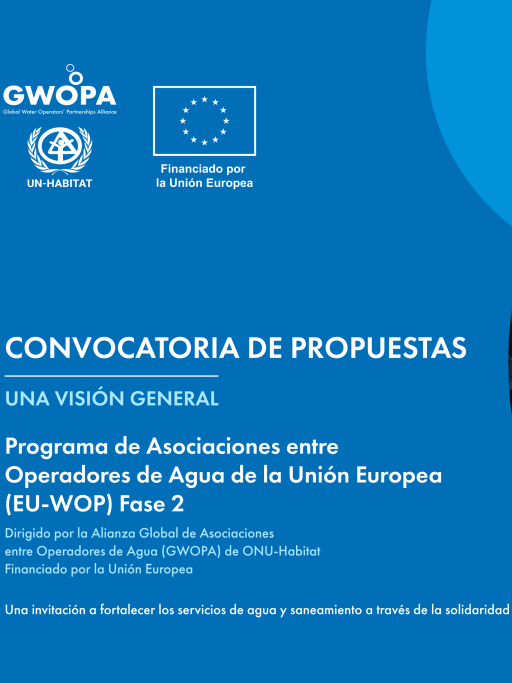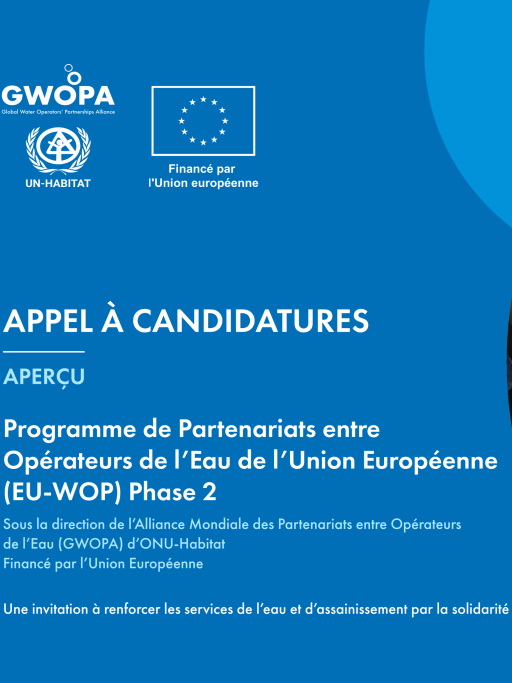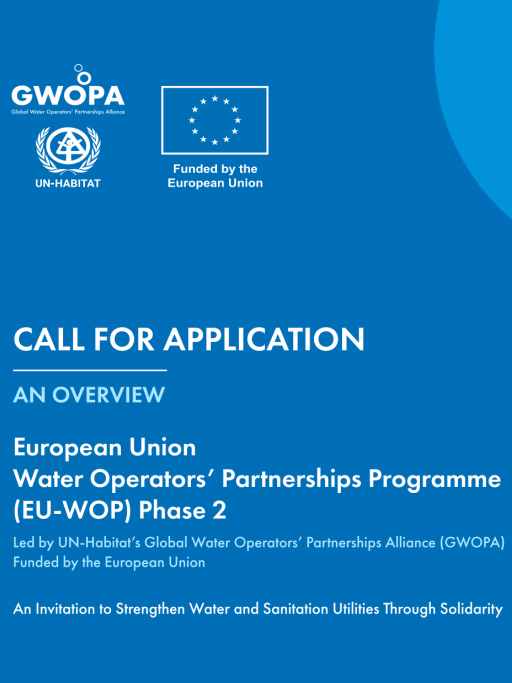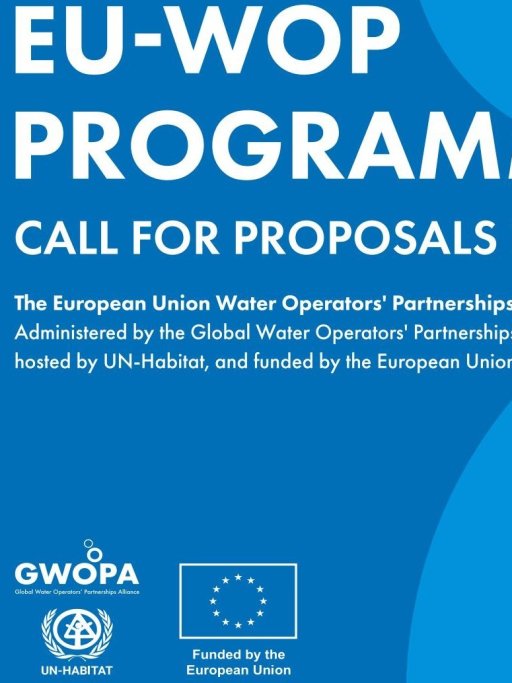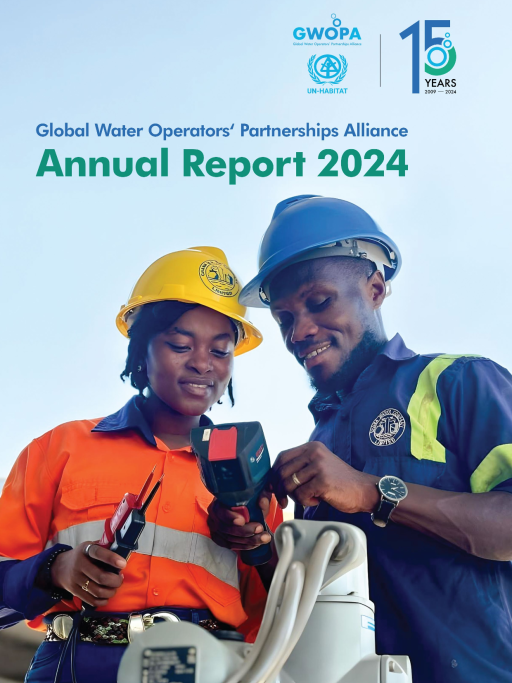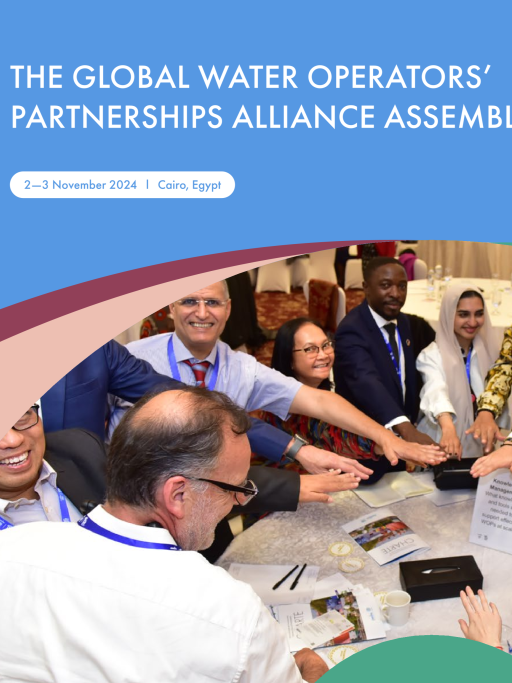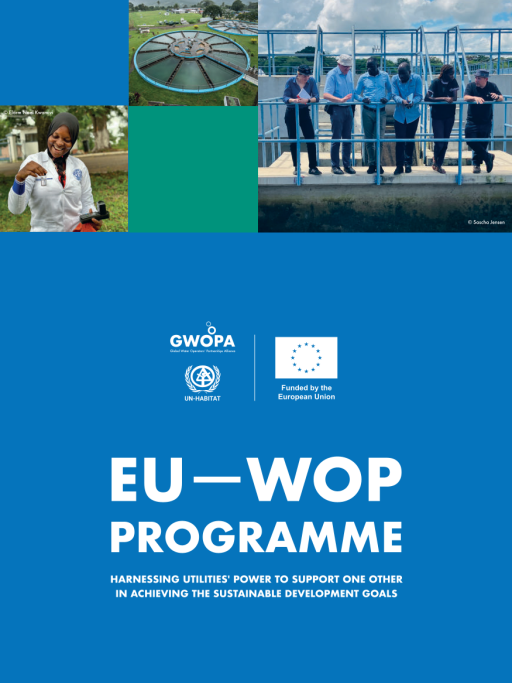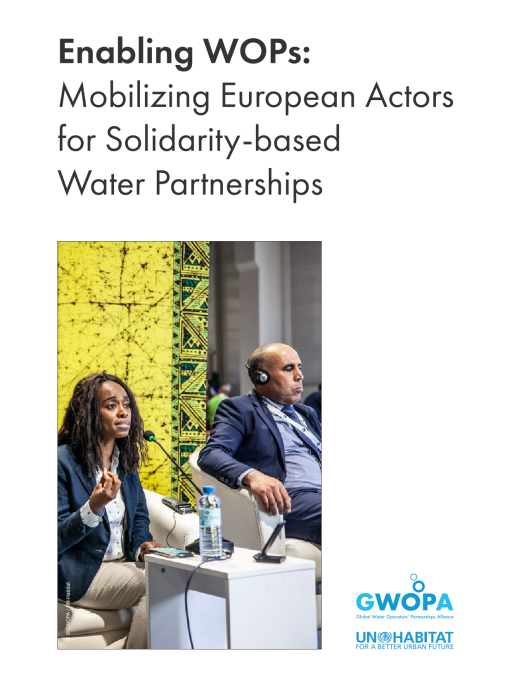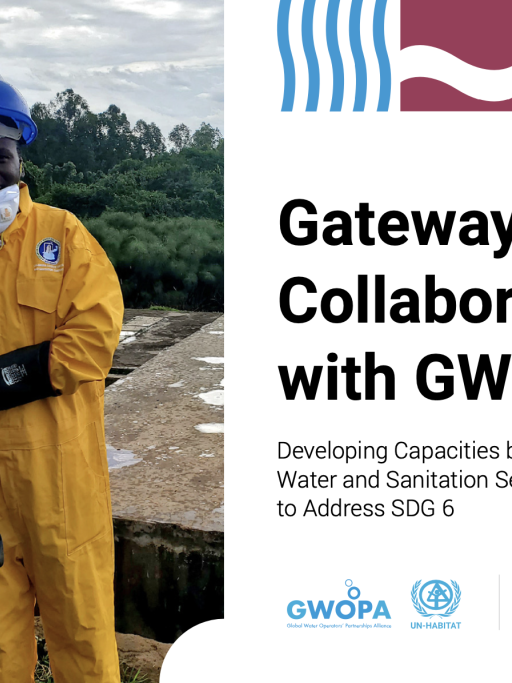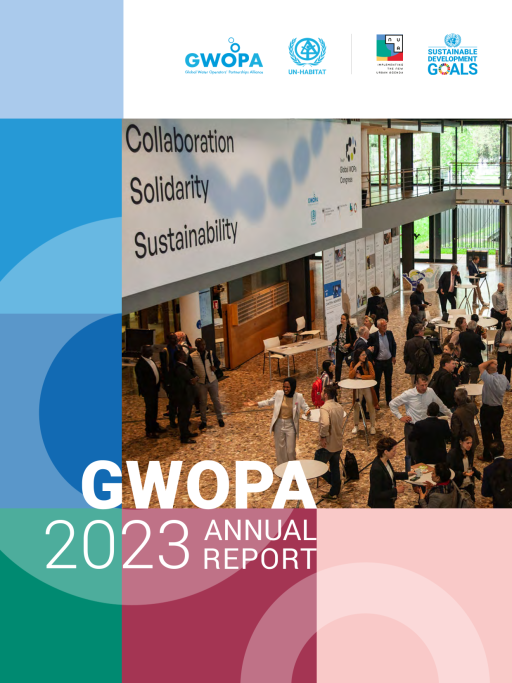General Information
Global
Programa EU-WOP 2. Paquete de Convocatoria de Propuestas
La presente publicación ofrece orientaciones detalladas sobre la manera en que los operadores que reúnan los requisitos pueden presentar propuestas en el marco del Programa EU-WOP 2, gestionado por GWOPA y financiado por la Unión Europea. Incluye información sobre los objetivos del programa, el proceso y el calendario de presentación, los criterios de admisibilidad, las ventanas de financiación y los ejes temáticos. Asimismo, describe los tipos...
General Information
Global
Programme EU-WOP 2. Dossier d'appel à candidatures
La présente publication fournit des orientations détaillées sur la manière dont les opérateurs admissibles peuvent soumettre une proposition dans le cadre de la deuxième phase du programme EU-WOP, géré par le GWOPA et financé par l’Union européenne. Elle présente les objectifs du programme, le processus de candidature et le calendrier, les critères d’admissibilité, les fenêtres de financement ainsi que les leviers thématiques. Elle décrit...
General Information
Global
EU-WOP 2 Convocatoria de Propuestas. Una Visión General
Este folleto ofrece una visión general de la segunda fase del Programa de Asociaciones entre Operadores de Agua de la Unión Europea (EU-WOP), liderado por la Alianza Global de Asociaciones entre Operadores de Agua (GWOPA) de ONU-Hábitat. En él se describen el proceso de presentación de solicitudes, las ventanas de financiación, los criterios de admisibilidad y los plazos clave para las entidades interesadas en establecer o ampliar asociaciones...
General Information
Global
EU-WOP 2 Appel à candidatures. Aperçu
Cette brochure présente un aperçu de la deuxième phase du Programme de Partenariats entre Opérateurs de l’Eau de l’Union européenne (EU-WOP), mis en œuvre sous la direction de l’Alliance mondiale des Partenariats entre Opérateurs de l’Eau (GWOPA) d’ONU-Habitat. Elle expose les modalités de candidature, les fenêtres de financement, les critères d’éligibilité ainsi que les principales échéances pour les opérateurs souhaitant établir ou renforcer...
General Information
Global
EU-WOP 2 Call for Application. An Overview
This brochure provides an overview of the second phase of the European Union Water Operators’ Partnerships Programme (EU-WOP), led by UN-Habitat’s Global Water Operators’ Partnerships Alliance (GWOPA). It outlines the application process, funding windows, eligibility criteria and key deadlines for utilities wishing to form or expand peer partnerships. The brochure also highlights inspiring WOP stories and the tools available to help applicants...
Tools & Guidelines
Global
EU-WOP Programme 2. Call for Proposals Package
This publication provides detailed guidance on how eligible operators can submit proposals under EU-WOP Programme 2, managed by GWOPA and funded by the European Union. It includes information on the programme’s objectives, application process and timeline, eligibility criteria, funding windows and thematic levers. It also outlines the types of eligible partnerships and activities, financial rules and selection process.
Policy Briefs & Reports
Global
GWOPA Annual Report 2024
UN-Habitat’s 2024 Global Water Operators’ Partnerships Alliance Annual Report highlights global efforts to strengthen public water and sanitation utilities through solidarity-based peer support. The report showcases how Water Operators’ Partnerships (WOPs) are helping utilities deliver better, more inclusive services – advancing sustainable urbanization and the human right to water and sanitation. Framed around the urgency of achieving...
Policy Briefs & Reports
GWOPA Assembly 2024 Report
The report provides an overview of the proceedings of the GWOPA Assembly held in Cairo on 2 and 3 November 2024.
General Information
Global
EU-WOP Programme. Harnessing Utilities' Power to Support One Other in Achieving the Sustainable Development Goals
The brochure provides an overview on the first phase of the European Union Water Operators' Partnerships (EU-WOP) Programme, 2020-2024, an an outlook to the second phase, 2025-2030.
Research
Europe
Enabling WOPs: Mobilizing European Actors for Solidarity-based Water Partnerships
This report examines Water Operators' Partnerships (WOPs) from a European view and presents recommendations to scale up WOPs in Europe by showcasing examples of enabling frameworks and best practices from countries and cities throughout Europe. It is designed to support all stakeholders: water and wastewater utilities, governments, financial institutions, development partners, civil society and anyone interested in making it easier for operators...
General Information
Gateway to Collaboration with GWOPA
In its 15 years of operations, the Global Water Operators’ Partnerships Alliance (GWOPA) has developed a suite of services to support governments and development partners. This gateway to collaboration showcases GWOPA’s different support mechanisms to enhance the effectiveness and efficiency of Water Operators’ Partnerships (WOPs) to improve services for all. Each service is designed to tackle specific challenges in alignment with the development...
Policy Briefs & Reports
GWOPA Annual Report 2023
This Annual Report gives an overview of the activities and achievements of the Global Water Operators’ Partnerships Alliance in 2023.
